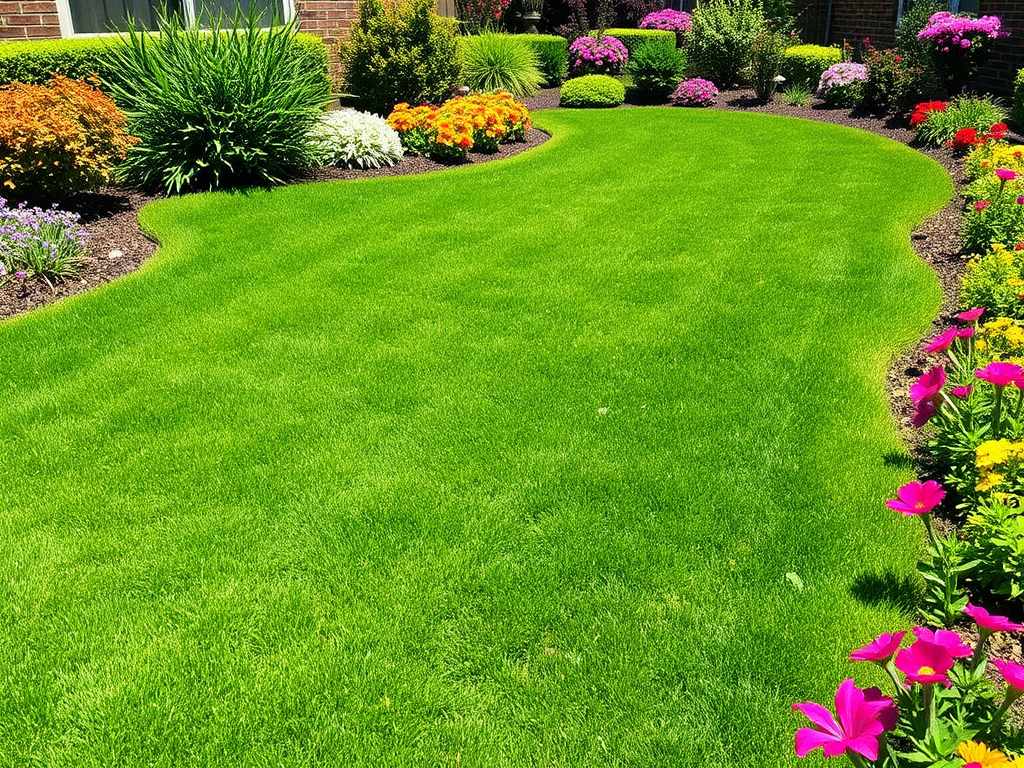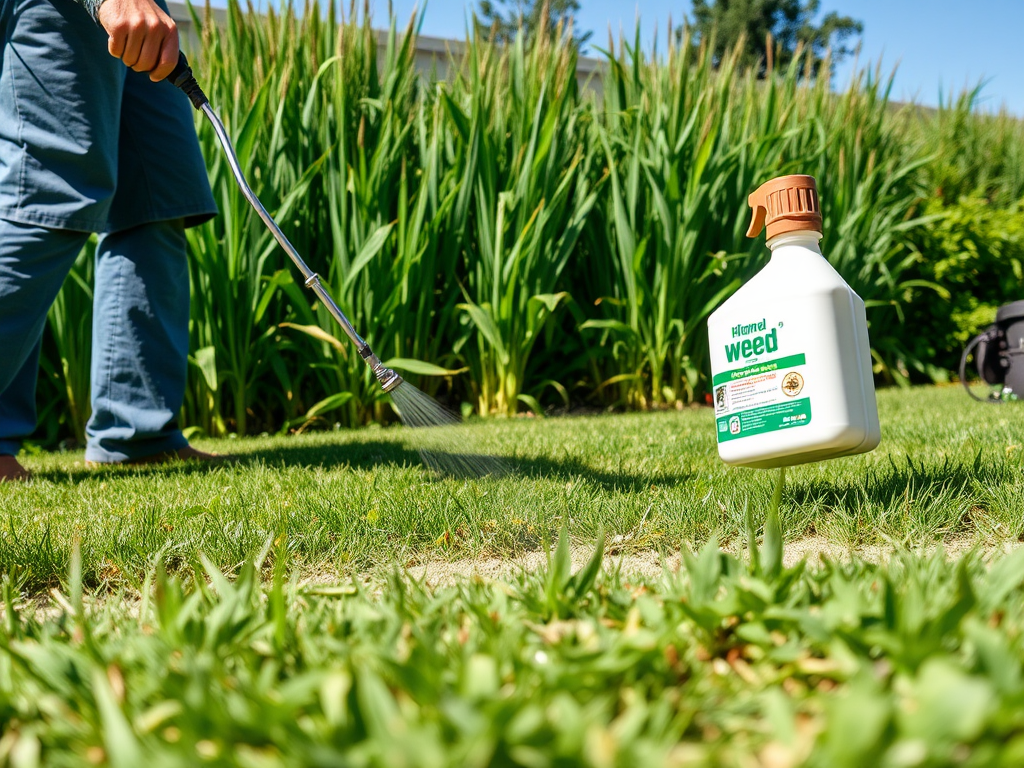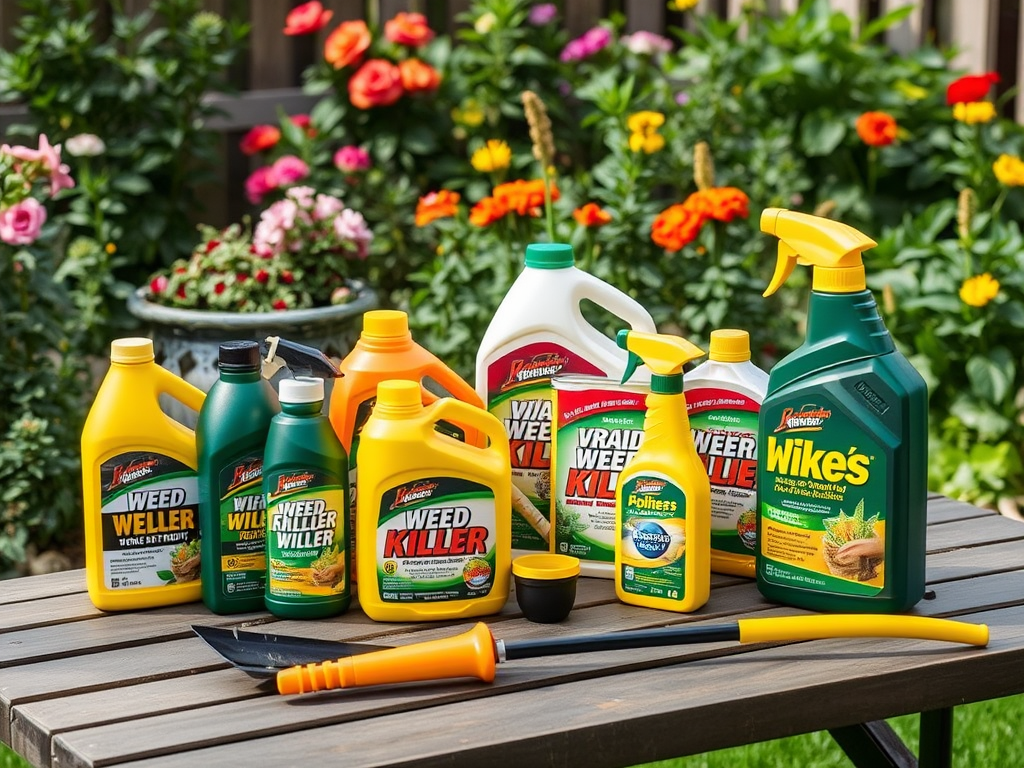An In-Depth Look at the Best Liquid Weed Killer for Lawns

When it comes to maintaining a lush and vibrant lawn, tackling pesky weeds can feel like an uphill battle. The right liquid weed killer can be the knight in shining armor that you need to fend off these unwelcome intruders. Liquid options provide several advantages over their granular counterparts, such as ease of application and quicker absorption into the weeds. Understanding the differences between these products can help you make the best choice for your specific needs. This guide is designed to explore the various types of liquid weed killers available, the factors to consider when making your selection, and some top recommendations to help you reclaim your lawn’s beauty. So, let’s dig deeper into the world of liquid weed killers and find the right solution for you.
Understanding Liquid Weed Killers

Liquid weed killers are formulated to eliminate unwanted plants in a safe and effective manner. These products can penetrate the foliage easily, making them often more effective than granular options, which may not reach their targets as readily. Additionally, liquid formulations can be finely sprayed, allowing for a more targeted approach to weed control. Some products come pre-mixed, while others require dilution before use, catering to a variety of user preferences. By choosing the right liquid weed killer, you can significantly improve your lawn’s overall health while effectively managing weed populations. Learning about the product types and their varying applications will empower you to maintain a thriving yard.
Types of Liquid Weed Killers

Understanding the types of liquid weed killers is crucial for effective lawn management. There are primarily two categories: selective and non-selective. Selective weed killers are designed to target specific weeds, sparing your grass and other desirable plants. They are ideal for managing common lawn weeds without harming the surrounding grass. On the other hand, non-selective weed killers kill all plant life they contact. While these are effective for clearing entire areas, they demand extreme caution during application.
Below are some key differences between the two types:
- Selective Weed Killers: Best for lawns, targeting specific weed types.
- Non-Selective Weed Killers: Effective for total vegetation elimination, including desirable plants.
- Application Process: Selective may require a more careful approach to avoid damage to nearby grass.
When it comes to selecting a suitable liquid weed killer, there are several factors you need to keep in mind. The type of weeds you are dealing with should guide your choice, as not all products can eliminate all types of weeds. Furthermore, consider the application method; some weed killers come with built-in sprayers, while others may require the use of a separate one. The specific type of grass in your lawn is also important; using a weed killer meant for cool-season grasses on warm-season lawns can result in damage to your yard.
Additionally, it’s advisable to consider the environmental impact of your chosen product. Many manufacturers now offer eco-friendly options that use natural ingredients, minimizing harm to beneficial organisms. Ultimately, the choice you make can have lasting effects on not just your lawn’s appearance, but also its health.
Top Recommendations for Liquid Weed Killers
With so many options available, it can be overwhelming to sift through various liquid weed killers. However, below, we’ve compiled a selection of standout products to consider:
| Product Name | Type | Effectiveness Against |
|---|---|---|
| Brand A | Selectively | Dandelions, clover |
| Brand B | Non-Selective | All Vegetation |
| Brand C | Selectively | Crabgrass, broadleaf weeds |
Each of these products excels in its category and suits different lawn needs. It’s essential to match the product characteristics with the specific issues you face. Reading through user reviews and expert recommendations can provide further insight into the effectiveness of each option.
Applying liquid weed killers properly is vital for achieving optimum results. Timing your application is one of the most significant factors. For instance, applying during calm weather conditions will reduce the risk of drift. Moreover, cloudy days are preferred, as they help prevent rapid evaporation of the solution. Always adhere to the recommended dilution ratios for each product to ensure efficacy.
- Apply during calm weather.
- Use cloudy days to minimize evaporation.
- Follow manufacturer instructions for dilution.
Using a targeted application method can also yield better results. Focusing on heavily infested areas while avoiding the surrounding established grass will significantly improve your lawn’s health and appearance.
Conclusion
In conclusion, liquid weed killers are indispensable tools for maintaining a healthy and beautiful lawn. By understanding the types available and carefully selecting the right product, you can efficiently combat unwanted weeds while preserving your grass’s vitality. Make sure to follow application guidelines for the best results, ensuring a thriving, weed-free lawn that you can be proud of. A little effort in the beginning can lead to significant rewards in the long run, transforming your lawn into a green oasis.
Frequently Asked Questions
- What is the best time to apply liquid weed killer? The best time is typically during the spring or early fall. Apply on calm, non-windy days to avoid drift.
- Can I use liquid weed killer on my vegetable garden? Most liquid weed killers are designed for lawns and may not be safe for vegetable gardens. Always check product labels for specific guidelines.
- How long before I can mow my lawn after applying liquid weed killer? It is generally recommended to wait at least 24 to 48 hours after application before mowing to ensure effectiveness.
- Are there environmentally friendly liquid weed killers? Yes, there are several eco-friendly options available that utilize natural ingredients to kill weeds without harming beneficial organisms.
- How often should I apply liquid weed killer? This depends on the product and the severity of your weed problem. Read the label for specific recommendations on frequency.


